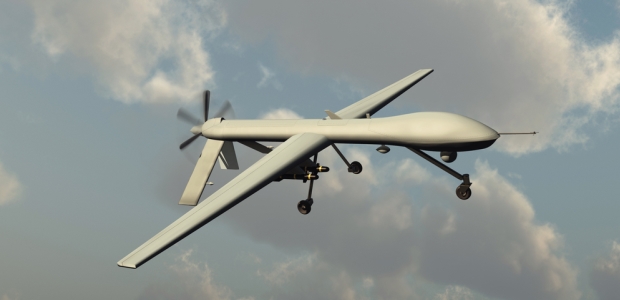
FAA Announces Six Winning Sites for Drone Testing Program
Sites in six states were selected from among 25 proposals from 24 states, the Federal Aviation Administration announced Dec. 30.
The Federal Aviation Administration has chosen six sites spread across the United States to conduct research and testing of unmanned aircraft systems as the federal agency moves forward on its program to integrate drones into the U.S. national airspace system. FAA's Dec. 30 announcement said during the 10-month selection period, it considered geography, climate, location of ground infrastructure, research needs, airspace use, safety, aviation experience, and risk.
It listed the test site operators and the research they will conduct:
- The University of Alaska, which proposed a diverse set of test site range locations in seven climatic zones and test site range locations in both Hawaii and Oregon. The university plans to work on safety standards for drone operations.
- The state of Nevada, which with concentrate on drone standards and operations, operator standards and certification requirements, and how air traffic control procedures will evolve with the introduction of drones into the civil environment, as well as how these unmanned aircraft will be integrated with NextGen.
- New York's Griffiss International Airport, which plans to work on developing test, evaluation, verification, and validation processes under FAA safety oversight, as well as researching sense and avoid capabilities for drone aircraft. It will research how to integrate these aircraft into the congested Northeast airspace.
- The North Dakota Department of Commerce, which will develop drone airworthiness essential data, validate high-reliability link technology, and conduct human factors research. "North Dakota's application was the only one to offer a test range in the Temperate (continental) climate zone and included a variety of different airspace which will benefit multiple users," according to FAA's announcement.
- Texas A&M University – Corpus Christi, which plans to develop system safety requirements for drone vehicles and operations with a goal of protocols and procedures for airworthiness testing.
- Virginia Tech, which will conduct drone failure mode testing and identify and evaluate operational and technical risks areas. Its proposal includes test site range locations in both Virginia and New Jersey.
In the announcement, FAA expressed confidence that alll six winning applicants will meet its research goals of System Safety & Data Gathering, Aircraft Certification, Command & Control Link Issues, Control Station Layout & Certification, Ground & Airborne Sense & Avoid, and Environmental Impacts.
This Slate blog post explains some of the ways drones already are being used to conduct surveying, assist in search and rescue, and aid in wildlife conservation.